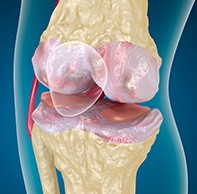Peer Reviewed
Feature Article Rheumatology
Knee osteoarthritis: management as a chronic disease
Abstract
The mainstay of treatment of osteoarthritis should be an integrated chronic disease management plan rather than episodic/reactive care. Long-term disease prevention is receiving greater focus, particularly weight control and injury prevention.
Key Points
- Comprehensive and multidisciplinary osteoarthritis (OA) management involves a combined treatment approach of nonpharmacological and pharmacological treatment to improve pain and function.
- Regardless of symptom severity or radiographic change, all patients with OA should engage in exercise and neuromuscular training.
- Weight reduction in overweight or obese patients can improve physical function and pain by up to 50% in weight-bearing joints.
- Regular education/advice and monitoring are key to patients’ long-term maintenance of physical activity and weight reduction.
- Choice of analgesia requires careful consideration of risk versus benefit and proven efficacy.
- Platelet-rich plasma treatment and stem cell injections are not advocated for the management of knee OA.
- Arthroscopic surgery is not indicated for treating pain associated with knee OA.
- Referral to an orthopaedic surgeon should be considered in patients with knee OA who have severe symptoms and functional decline and have failed conservative management.
Picture credit: © Alexandr Mitiuc/Dollar Photo Club.
Purchase the PDF version of this article
Already a subscriber? Login here.

